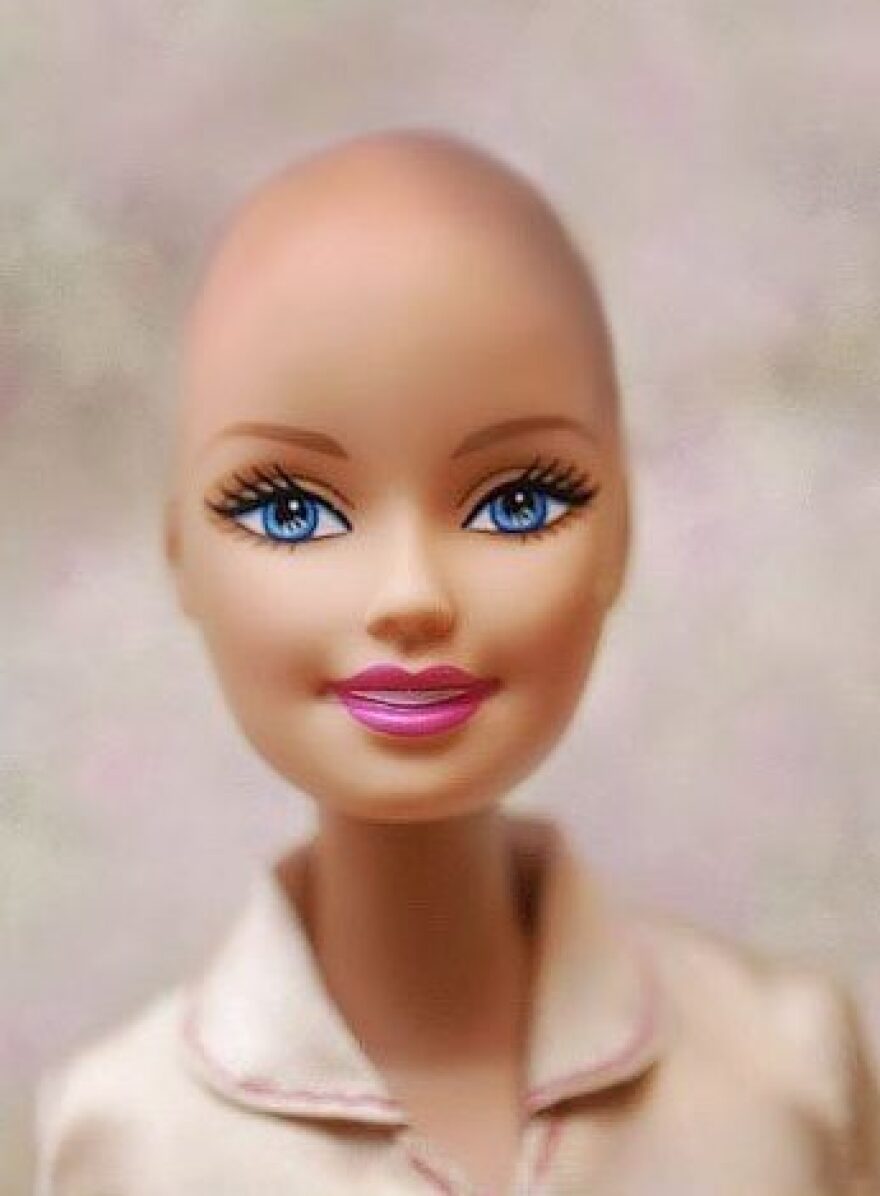Barbie is best known for her curvy figure and long blond hair — but Mattel plans to produce a doll that's a dramatic departure from that classic image.
This Barbie will be bald.
Mattel decided to make the doll after a campaign by Jane Bingham, a survivor of non-Hodgkin's lymphoma in Philadelphia. She started a Facebook group with her friend called "Beautiful and Bald Barbie." She tells Audie Cornish, host of All Things Considered, that they wanted the toymaker to create a doll for kids who have cancer or have lost their hair for medical reasons.

"One of the major reasons was to reduce the stigma for women and children who have hair loss — being not accepted to be able to go out in public without something covering their head, whether it be a wig or a scarf or that sort of thing," Bingham says. "Their beauty and their self-worth is not dependent upon their hair."
Barbie Is An 'Icon Of Beauty'
Bingham says she was drawn to Mattel, in part, because the company made a one-of-a-kind bald Barbie for a girl in New York City who lost her hair to chemotherapy.
"Barbie [is] the icon of beauty in the toy industry — she's known all over the world," she says.
The main purpose of the doll is to make female baldness more acceptable, Bingham says.
"I don't think it will ever make it really normal, but to be accepted and to be seen as not scary or strange," she says. "That's what really we want to show — that children and women should not feel ashamed and have to cover up their heads."
An Effort To Reduce Stigma
Bingham was inspired to start the campaign after she lost her own hair during chemotherapy last year. She says she could handle it as an adult but realized children might have a harder time with it.
"I felt such a passion about reducing this stigma and that I shouldn't be ashamed," she says. "I mean, I was going through a major fight in my life. And [the bald head] is almost like a symbol of the fight that I was going through."

After the Facebook campaign, Mattel announced it would make a few of the dolls and donate them to kids experiencing hair loss in cancer wards and hospitals. And, as the company explained in a statement, "We made the decision not to sell these dolls at retail stores, but rather get the dolls directly into the hands of children who can most benefit from the unique play experience."
Bingham says she is still fighting to get the dolls sold in stores. "A big reason that I even started this, I thought of all the children who have a family member who are going through hair loss and how many children would benefit from this," she says. "And as of right now, none of those children would have an opportunity to have one of these dolls."
In the meantime, another toymaker, MGA Entertainment, says it plans to debut bald versions of Bratz and Moxie Girlz this summer.
Copyright 2020 NPR. To see more, visit https://www.npr.org.



